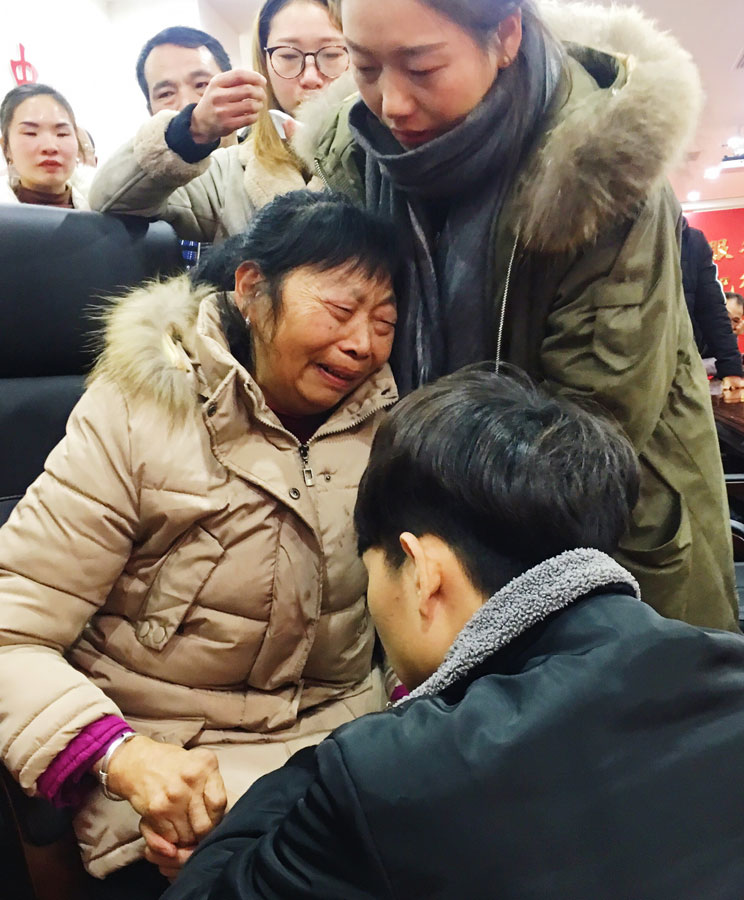23 years after 3-year-old was abducted, mother rewarded in flood of tears
By Yang Jun in Guiyang and Li Lei in Beijing | China Daily | Updated: 2019-01-09 09:11

For the last 23 years, vegetable vendor Fan Shiying has refused to relocate her stall in Kaili, a county-level city in Guizhou province.
The mother has held a glimmer of hope that her son, Liang Shuisheng - who was abducted from the market in the summer of 1995 when he was 3 years old - would find his way back.
Her dream came true on Sunday, as the volunteer association Baobei Huijia (Baby Back Home) helped reunite the pair at the local police station after a DNA match was made. More than 30 of her relatives were present.
The son, now 26, was named Cai Jianghuai by his foster family in Nan'an, Fujian province. He is married and will become a father in March.
"The rock hanging in my bosom finally touched the ground," the 53-year-old mother sobbed as Cai knelt before her.
In August 1995, Fan left her 3-year-old son at the stall to look for her husband, but when she came back only a couple of minutes later, he was gone, Fan said.
The couple reported the case to the police, but the search came up empty. "We expanded our search to the provincial capital, Guiyang. We searched for days without eating," Fan said, adding she was also a regular visitor at gatherings organized by parents whose children had been lost. She also provided blood samples in 2010.
In 2016, Cai registered with the Baobei Huijia after watching Waiting For Me, a China Central Television program aired in cooperation with the association. But it was not until last year that he agreed to give a blood sample, a crucial step that helped end the grueling search.
Though he was aware growing up that he was adopted, Cai had been told he had been sold by his biological parents. That was the reason he had declined to give a blood sample, he said.
"But the volunteers argued that it was unlikely I had been sold by my parents," he said, adding that he could remember little except that someone had clutched him all the way to Fujian on the train or bus and that he ended up in his foster family. The household registration document said he was adopted from Guizhou.
Wen Qingyong, a volunteer who had followed the search, said it's hard to determine whether the foster parents had paid money to human traffickers for the boy, and it's unlikely that Cai will sue them since they had gone to the trouble of raising him.
Human traffickers can receive the death penalty in China, but those who purchase children were once exempt from criminal punishment so long as the victim was not abused or prevented from leaving.
However, a revision to the Criminal Law in 2015 made it a crime to buy children, though offenders could be given leniency if no abuse was found.
Founded in 2007, Baobei Huijia has more than 40,000 volunteers and has helped 2,700 abducted or otherwise missing children reunite with their families. Its founder, Zhang Baoyan, and her husband, Qin Yanyou, established a foundation of the same name in 2010.
Li Hanyi contributed to this story.
























